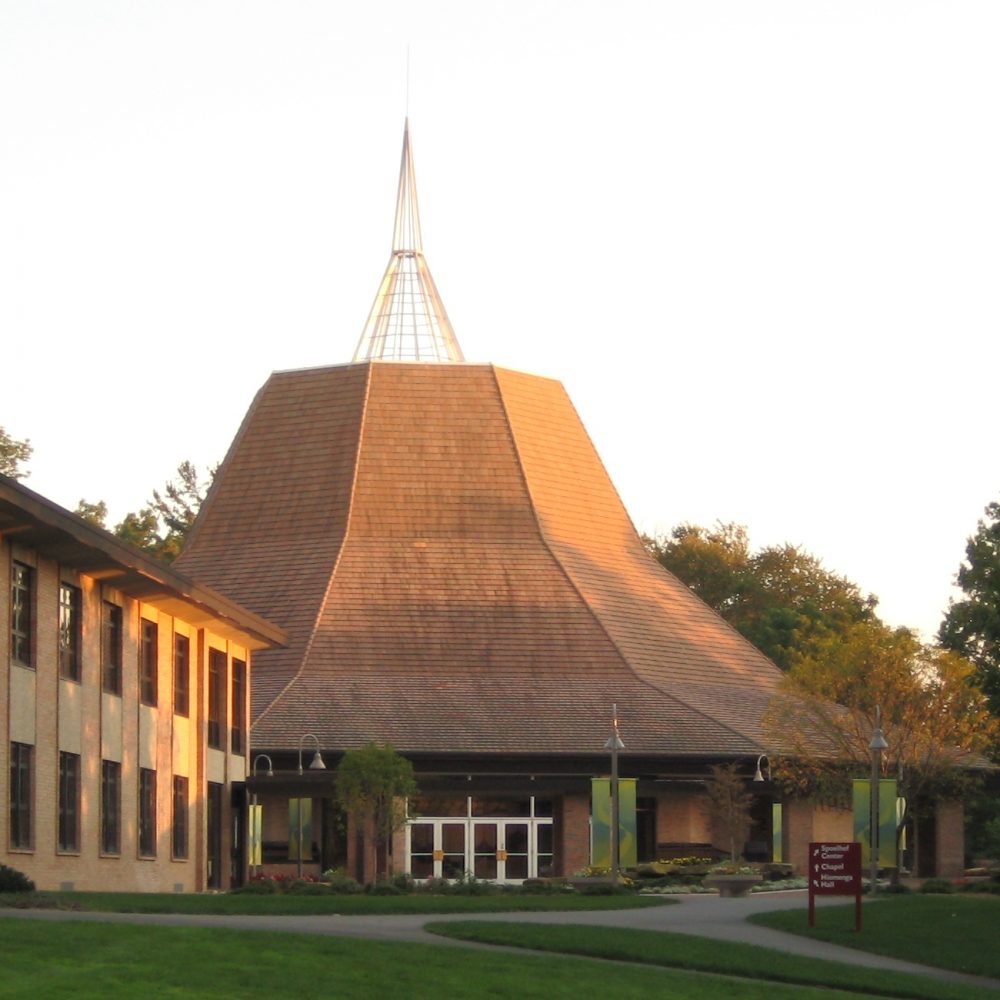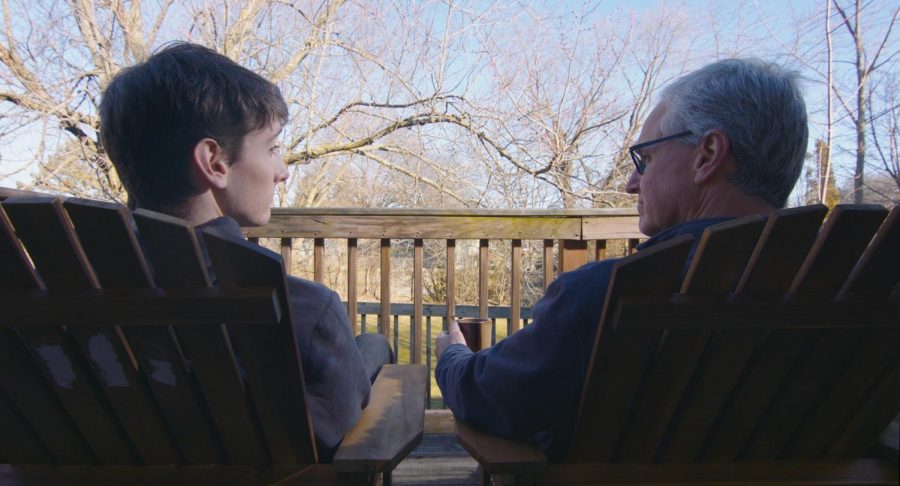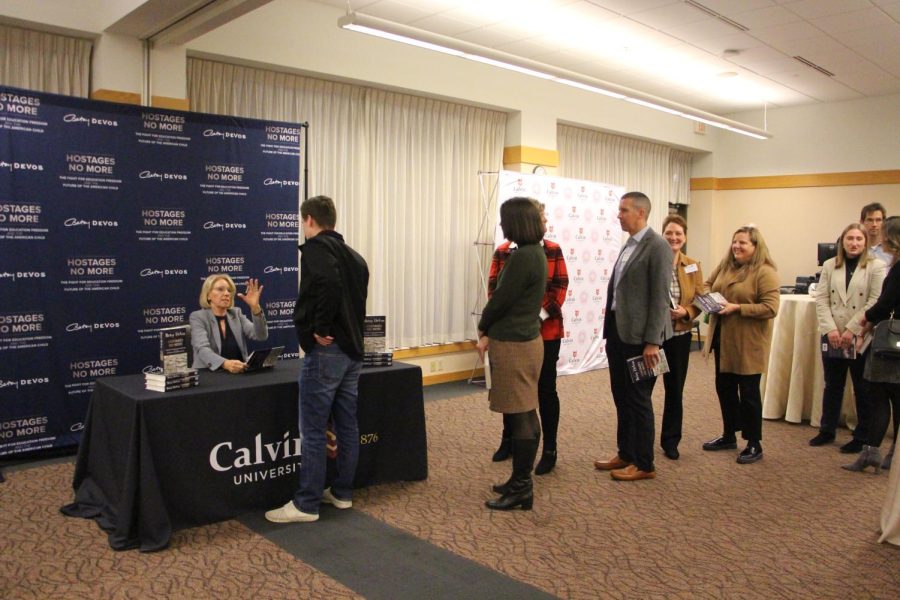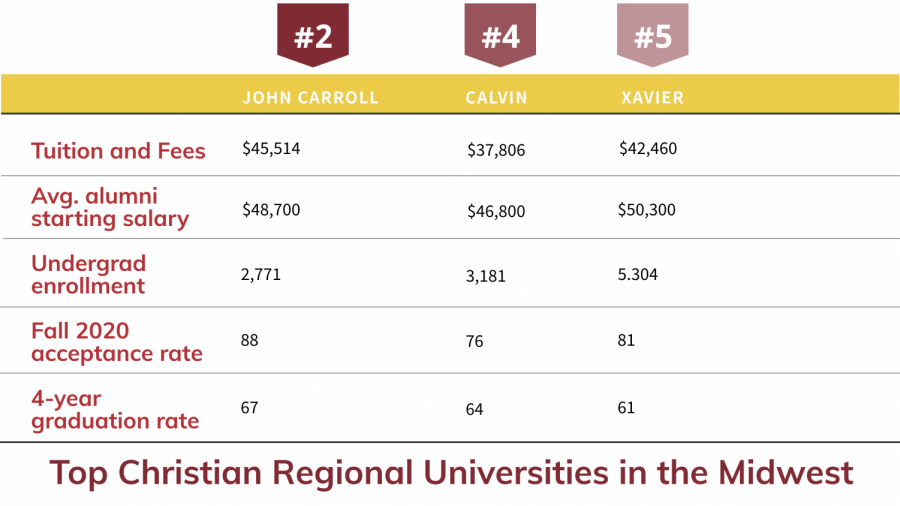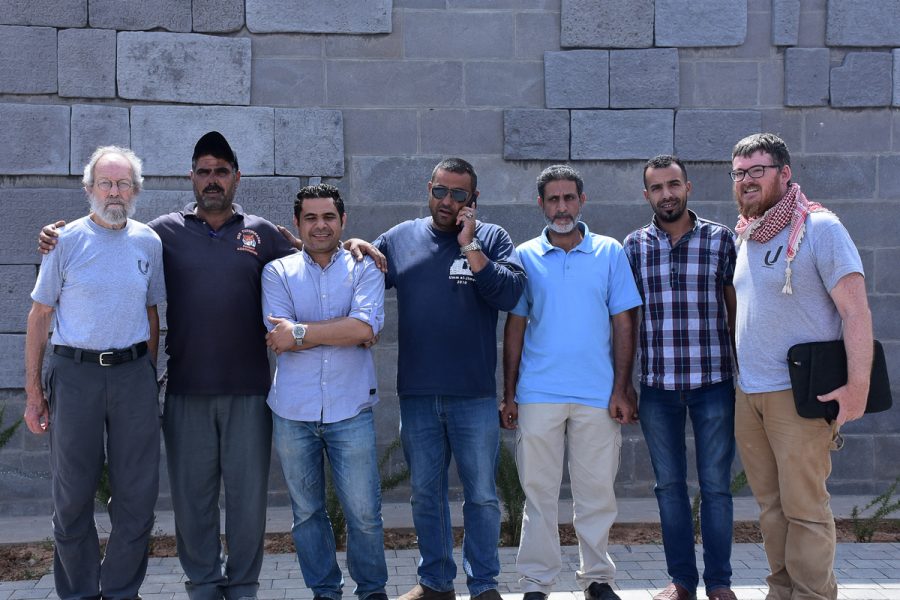Calvin is offering a voluntary retirement incentive to staff and faculty members who are at least 60 years old and have worked at Calvin for at least 10 years.
The incentive, which was announced on Friday, Feb. 17, includes one week of pay for each year of service with a minimum of 26 weeks. For example, 17 years of service would earn an employee 26 weeks of pay, while 30 years would earn 30 weeks of pay.
Employees who are accepted for the program will also transition to the retiree health plan if eligible and retain any tuition remission benefits for their dependent children.
The purposes of the program, according to the documents sent to staff and faculty, are to redirect resources and respect the contributions to Calvin of those who apply for the incentive and are accepted. It’s also intended to “minimize the need for potential involuntary staff reductions.”
The program is part of an effort to budget conservatively given declining enrollment numbers over the past few years. The 2017 graduating class is large — over 1,000 students — and Calvin is anticipating 910 students to enroll next fall based on this year’s numbers.
Tuition and fees made up 56 percent of Calvin’s revenue in 2016, so lower enrollment numbers affect the budget significantly.
“50 to 60 percent of our overall budget here at the college is related to salaries and benefits,” said Sally Vander Ploeg, vice president for finance and administration. “If we’re in a time of declining tuition revenue, it forces us to look at that line item.”
While the numbers of students and faculty members have been decreasing, the number of staff members has increased slightly in recent years, according to Todd Hubers, vice president for people, strategy and technology. This retirement incentive was first conceived as a way to decrease the staff numbers and then later expanded to include faculty.
While the staff portion of the program is intended to reduce the number of employees, Provost Cheryl Brandsen said that faculty members who take the incentive will be replaced. This still saves Calvin money, since new assistant professors make less than full professors who are high up on the salary scale.
Brandsen clarified that “the replacements, however, might not go to the department(s) that lost a faculty member but rather to where there is greatest need.” Brandsen said that she plans for these replacements to be “regular appointments” — not adjunct or part-time faculty.
Philosophy professor David Hoekema said that the incentive makes sense as a way to cut costs:
“When you’re trying to economize, trying to cut back, it makes sense to give people a little nudge. … It just means that some of the retirements you could count on happening in the next five to ten years are going to happen in one year.”
But Hoekema also expressed concern about how the replacements would be made, since new hires won’t necessarily be in the same departments as retiring professors:
“I would feel much more comfortable deciding whether or not to use the incentive if I knew what was going to happen in philosophy.”
Staff who are approved for the incentive will be done working by June 30 of this year. Faculty members, however, will continue to teach next year and will retire by August 31, 2018.
According to Hubers, the expanded timeline for faculty is an adjustment from the voluntary buyouts offered to faculty in three departments in 2015.
“Some of the feedback we got from the [voluntary buyout in 2015] was that it was too rushed,” Hubers said. “This is giving faculty members a longer time to consider but also a longer time to plan it. And more time for the college to plan too.”
After some of the recent cuts to programs and faculty positions, “some [faculty members] complained that if [administration] believed something more were needed, to please start with more voluntary methods,” said economics professor Scott Vander Linde. “In light of that, I am pleased that they are initially giving this opportunity in a voluntary way.”
The Professional Status Committee will review applications for the incentive from faculty, and an ad hoc administrative committee will review applications from staff. The committee members are Brandsen, Hubers, Vander Ploeg and Andy George, director of human resources.
These committees hope to approve as many applications as possible within the limitations of available funding and “preserving the vitality of affected programs and services,” according to the document sent to staff and faculty.
“If an employee goes through the work and gets to a point of deciding that they want to apply for this, they’re deciding that they would really like to retire,” Hubers said. “We want to honor that if we can.”
Since staff numbers will decrease, Brandsen said, “One of the challenges is that people will need to think about how to get their work done differently, and it could very well be the case that there are some things that we’re doing now that we won’t be able to continue doing.”
Brandsen emphasized that this program is “completely” unrelated to Calvin’s recent debt crisis:
“That chapter is closed. We had a debt of 115 million; we got that down to 78 million, which was the target. … That seemed insurmountable back then, and we did it, which gives me great hope for weathering what now is a common experience for many private colleges, especially in the Midwest.”
Brandsen called that “common experience” of dealing with smaller enrollments a “new normal” for private colleges like Calvin.
“It’s not a big comfort to say, ‘Oh, that was a different crisis. Now we’re in a new crisis,’” said Hoekema. “It feels like the same atmosphere.”
Hoekema added that the incentive is “fairly modest.” It is smaller than the 2015 buyout, which included a full year’s salary plus 25 percent, but the earlier program did not include the retiree health plan or the continued tuition benefits.
“I told my family I’ve been offered a golden parachute,” said Hoekema, “but it’s actually more like one of those handkerchief parachutes.”




